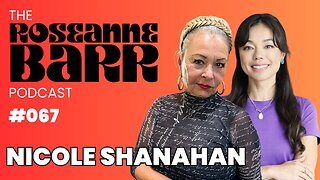5 Steps for Preparing Your Finances When Buying a Home in NYC
Are you thinking about buying a home in NYC? Follow these 5 steps for preparing your finances for a real estate purchase in New York City.
I’m Nick at Hauseit, based here in NYC. Visit https://hauseit.com to learn how to save money if you’re buying or selling a co-op, condo or townhouse here in NYC. So let’s get started!
1) Get Pre-Approved
Getting pre-approved is the single most important step when it comes to preparing your finances for a home purchase. A bank issues a pre-approval letter after they’re reviewed your credit, assets and income and determined that you’re a strong candidate for receiving a loan.
Having a pre-approval letter is a requirement for submitting offers in NYC. But even if you’re not yet ready to start viewing homes and submitting offers, having a conversation with a lender as a first step is highly recommended. This is because a mortgage professional can give you a realistic sense of your budget, factoring in your income, assets as well as other considerations like buyer closing costs, which unfortunately in NYC are the highest in the country.
Please be sure to check out Hauseit’s free and interactive NYC Buyer Closing Cost Calculator: https://www.hauseit.com/closing-cost-calculator-for-buyer-nyc/
This calculator gives you an itemized breakdown of all buyer closing costs so you can better understand the big picture when it comes to the costs of buying a home in NYC.
If you’re serious about buying within the next few months and plan on starting your search right away, we recommend obtaining a pre-approval letter immediately. Desirable homes in NYC sell quickly, and if there’s competition from other buyers, you will lose out on that dream home if you’re stuck waiting days for a pre-approval letter.
2) Learn About Co-op Financial Requirements
Co-ops in NYC have specific buyer financial requirements. These include a maximum debt-to-income ratio, minimum post-closing liquidity and a minimum percentage down. These requirements are almost always stricter than what a lender might ask for. In the case of the debt-to-income ratio, most lenders will underwrite up to 43%, but a typical co-op in NYC might not allow anything above 25% or 30%.
If you’re considering a co-op, it’s important to consider these financial requirements when it comes to your overall budget.
3) Address Debt-to-Income Deficiencies
If your debt-to-income ratio is borderline but you have ample assets, it might make sense to pay down certain debts in advance of buying a home. Let’s say your debt-to-income ratio is 31%. But you have a $500/month car lease with 6 months remaining. If you early-terminate the lease, your debt-to-income ratio drops from 31% to 28%. This could make all the difference when it comes to being approved or rejected by a co-op board.
4) Understand Gifting
Many co-op buyers discover that their finances are insufficient for board approval. Let’s say you have a high paying job and can comfortably afford the 20% down payment and closing costs, but you only have 12 months in post-closing liquidity as opposed to the 24 months required by the board. What do you do? Well, the most common solution is to receive a gift from a family member.
Most co-ops permit gifting, but there are handful of co-ops which don’t allow gifting or cap the size of the gift one may receive. The good news is that there’s an easy workaround for this. What you should do is receive the gift more than 3 months before the time you sign a purchase contract on a co-op and submit the co-op board package.
Why 3 months? Well, most co-ops require the most recent 3 months of bank statements. Co-ops have no way of seeing any of your bank activity prior to the earliest statement period they request. So if you receive the gift early enough, it’s technically no longer a gift, but rather just part of your assets, at least in the eyes of a co-op board.
5) Simplify Accounts
You’ll make your life much easier if you try and consolidate bank and brokerage accounts several months before you decide to buy a home.
But just remember: more accounts means more paperwork, and a bigger paper trail. When the lender asks you to submit the last 3 months of bank statements for all accounts, you’ve just created extra work for yourself. Having loads of accounts also bloats the size of the board application, making it more time intensive while also increasing the likelihood of mistakes. Moreover, in the case of a co-op, having a simple financial statements with very few accounts makes it easier for a co-op to understand your financials. And making things more straightforward for the co-op board makes it more likely that they’ll approve you.
Save 6% When Selling in NYC: https://www.hauseit.com/agent-assisted-fsbo/
.
.
Hauseit LLC, Licensed Real Estate Broker
Tel: (888) 494-8258 | https://www.hauseit.com
_
#hauseit #hauseitnyc
-
 LIVE
LIVE
Kim Iversen
2 hours agoThe Shocking Reasons Behind Society's Moral Decay. Why Our World is Falling Apart | James Arthur & Bersabeh Ray
1,302 watching -
 LIVE
LIVE
Glenn Greenwald
2 hours agoBeirut Bombing: Is There Any Limit On Civilian Deaths? Interview With Harvard Grad Alleging Campus Antisemitism | SYSTEM UPDATE #343
4,337 watching -
 LIVE
LIVE
Nerdrotic
4 hours agoRings of Power HATES Tolkien, Agatha FLOPS, The Penguin ROCKS - Friday Night Tights #321 YellowFlash
8,503 watching -
 LIVE
LIVE
Roseanne Barr
56 minutes agoNicole Shanahan Is BASED AF | The Roseanne Barr Podcast #67
1,991 watching -
 LIVE
LIVE
Hathor Studios
11 hours agoCode 12 — The Movie
125 watching -
 LIVE
LIVE
JoBlo Originals
17 minutes agoFriday Night Flicks!
61 watching -
 LIVE
LIVE
Tundra Gaming Live
3 hours agoThe Worlds Worst Horror Streamer Has Heart Attack Playing Phasmophobia
97 watching -

Havoc
3 hours agoFeds on a Rampage | Stuck Off the Realness Ep. 15
5.78K4 -
 LIVE
LIVE
Edge of Wonder
2 hours agoPanda Cloning, Do You Trust Chinese AI? & Jungle Walrus Cryptid
341 watching -
 LIVE
LIVE
2 MIKES LIVE
8 hours ago2 MIKES LIVE #122 Open Mike Friday!!
1,531 watching